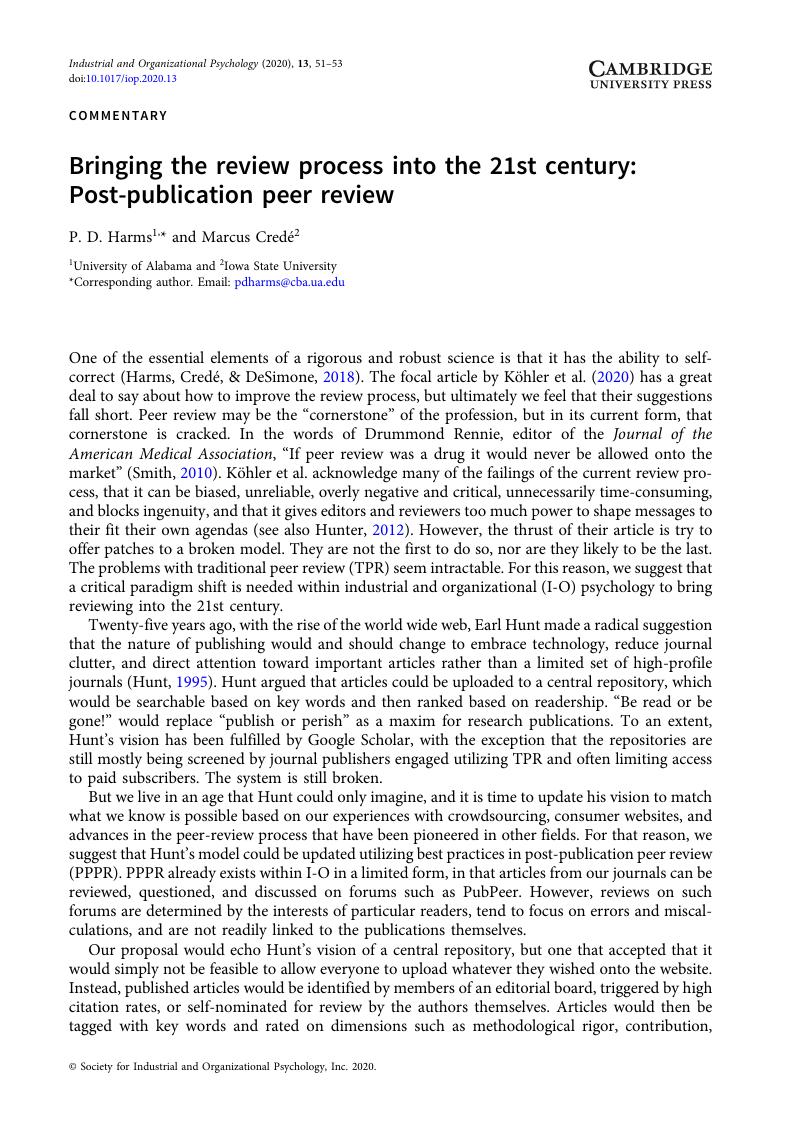Crossref Citations
This article has been cited by the following publications. This list is generated based on data provided by Crossref.
Credé, Marcus
and
Harms, P. D.
2021.
Three cheers for descriptive statistics—and five more reasons why they matter.
Industrial and Organizational Psychology,
Vol. 14,
Issue. 4,
p.
486.
Teixeira da Silva, Jaime A.
and
Yamada, Yuki
2021.
An extended state of uncertainty: A snap-shot of expressions of concern in neuroscience.
Current Research in Behavioral Sciences,
Vol. 2,
Issue. ,
p.
100045.
Teixeira da Silva, Jaime A.
2022.
A Synthesis of the Formats for Correcting Erroneous and Fraudulent Academic Literature, and Associated Challenges.
Journal for General Philosophy of Science,
Vol. 53,
Issue. 4,
p.
583.
Bianchi, Federico
García-Costa, Daniel
Grimaldo, Francisco
and
Squazzoni, Flaminio
2022.
Measuring the effect of reviewers on manuscript change: A study on a sample of submissions to Royal Society journals (2006–2017).
Journal of Informetrics,
Vol. 16,
Issue. 3,
p.
101316.
Brewin, Chris R.
2023.
Inaccuracy in the Scientific Record and Open Postpublication Critique.
Perspectives on Psychological Science,
Vol. 18,
Issue. 5,
p.
1244.
Lakhotia, Subhash C.
2023.
The Quintessence of Basic and Clinical Research and Scientific Publishing.
p.
907.
Teixeira da Silva, Jaime A
and
Nazarovets, Maryna
2024.
Better guidance is needed for editorial expressions of concern.
Accountability in Research,
Vol. 31,
Issue. 8,
p.
1260.
Gao, Fujuan
Fenoaltea, Enrico Maria
Zhang, Pan
and
Zeng, An
2024.
A reviewer-reputation ranking algorithm to identify high-quality papers during the review process.
Expert Systems with Applications,
Vol. 249,
Issue. ,
p.
123551.
Teixeira da Silva, Jaime A.
and
Daly, Timothy
2025.
No reward without responsibility: Focus on peer review reports.
Ethics, Medicine and Public Health,
Vol. 33,
Issue. ,
p.
101033.



